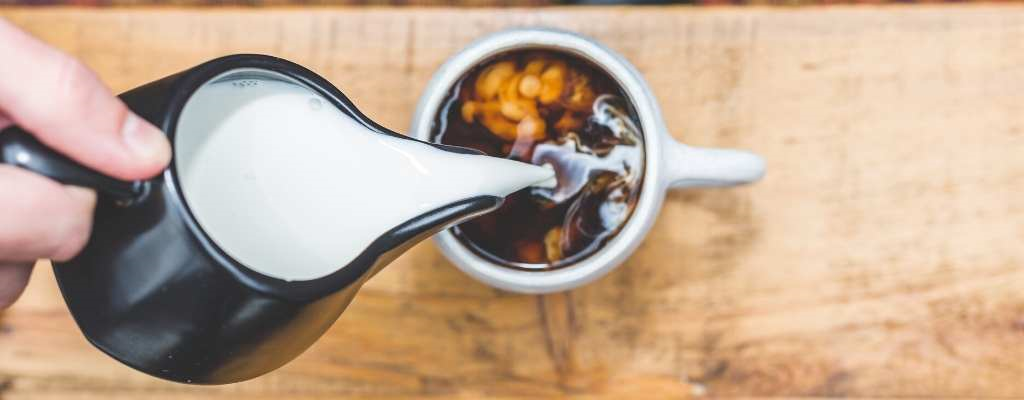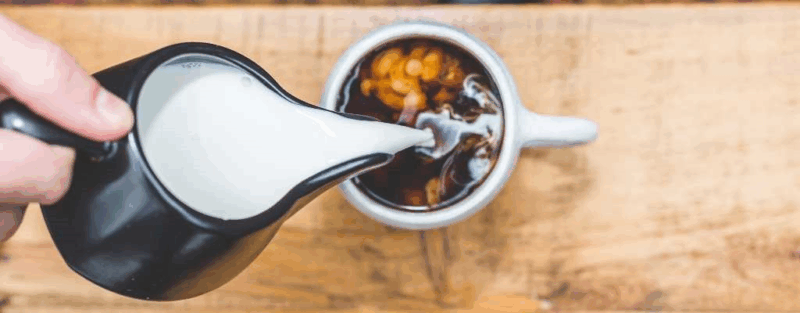Best Milk for Coffee: Dairy & Non-Dairy Options Explained | Dreaming Coffee!
Introduction
Coffee is more than just a daily ritual it is an art form cherished by millions around the world. For true coffee enthusiasts, every detail matters, and one of the most significant factors in shaping the perfect cup is the choice of milk. Whether you prefer the intensity of a robust espresso or the silky smoothness of a well-crafted latte, the milk you choose has a direct impact on flavor, texture, and overall enjoyment.

This guide explores traditional dairy options and modern plant-based alternatives, highlighting the essential qualities that define great milk for coffee, and helping you select the best option for your personal taste and lifestyle.
Types of Milk Popular in Coffee
Whole Milk
Whole milk is often regarded as the gold standard for coffee due to its naturally high fat content.

- Ideal for frothing: Whole milk produces dense, stable foam perfect for lattes, cappuccinos, and latte art.
- Balanced flavor: Its fat softens coffee’s natural bitterness, creating a well-rounded cup.
- Versatility: Universally loved for espresso-based drinks, offering creaminess without overpowering flavor.
2% Milk (Reduced-Fat)
A middle ground between richness and lightness.
- Texture: Lighter than whole milk but still creamy.
- Health-conscious choice: Fewer calories and fat without losing too much body.
- Everyday use: Works well in cappuccinos and flat whites.
Skim Milk (Fat-Free)
A lean option, ideal for those counting calories.
- Light and airy: Produces foam with large bubbles, less silky than whole milk.
- Flavor: Allows the coffee’s natural notes to shine but lacks creaminess.
- Calorie-friendly: Perfect for those seeking the lowest fat option.
Non-Dairy Milk Alternatives
The rise of plant-based diets has made non-dairy milk a staple in modern coffee culture. Each option brings unique characteristics:

- Almond Milk: Nutty, lightly sweet flavor. Best for iced coffee or as a dairy-free latte base.
- Soy Milk: Creamy, neutral, and reliable for frothing. A classic non-dairy choice.
- Oat Milk: Naturally sweet, creamy, and froths well at lower temperatures—popular for lattes.
- Coconut Milk: Adds tropical, coconut-forward notes; best in flavored coffees or specialty drinks.
- Cashew Milk: Velvety and smooth, with subtle nuttiness—an indulgent dairy-free option.
The Best Traditional Dairy Milk for Coffee
Whole milk consistently earns top marks due to:
- Creaminess: Fat content balances espresso’s bitterness.
- Frothing quality: Produces silky microfoam essential for latte art.
- Flavor balance: Enhances coffee without overwhelming it.
However, personal preference matters most. Some prefer the lighter mouthfeel of 2% milk, while others seek plant-based alternatives for dietary or ethical reasons.
Qualities to Look for in Milk for Espresso
When crafting milk-based espresso drinks, consider:
- Freshness: Always use milk before its expiration date.
- Steaming temperature: 150–155°F (65–68°C) for dairy; slightly lower (130–140°F) for oat milk.
- Microfoam: Aim for velvety, fine-textured foam with no large bubbles.
- Natural sweetness: Both whole and oat milk naturally enhance espresso.
- Consistency: Milk should blend seamlessly with coffee without separation.

Comparing Costs: Dairy vs. Non-Dairy Milk
- Dairy milk: Generally the most affordable, widely available.
- Non-dairy milk: Typically $0.50–$1.00 more in cafés due to higher production costs.
- Oat milk: Popular and competitively priced compared to other alternatives.
- Cashew & coconut milk: Tend to be more premium, depending on brand.

Conclusion
There is no single “best” milk for coffee—only the best milk for your taste and lifestyle.
- For classic espresso drinks → Whole milk remains the benchmark.
- For lighter balance → 2% milk offers a smooth compromise.
- For plant-based options → Oat milk stands out as the most coffee-friendly.
Ultimately, the right choice is the one that elevates your coffee ritual, bringing both pleasure and consistency to every cup. Experiment across options until you discover your perfect match.
Author

Brendon McAliece has spent more than 45 years immersed in a passion for coffee, exploring beans, brewing traditions, and café cultures across the globe.
A multilingual expat fluent in Thai, three Thai dialects, Lao, and European languages, he values the role of coffee and language in building cultural connection.
His diverse background also includes over three decades in flight simulation and PC building, alongside two decades of service as a jet fighter weapons and egress technician.
Learn more @
DreamingGuitar.com – DreamingCoffee.com – LetsFlyVFR.com
Home – Blog – Shop – About
As an Amazon affiliate I may earn on qualifying sales.


